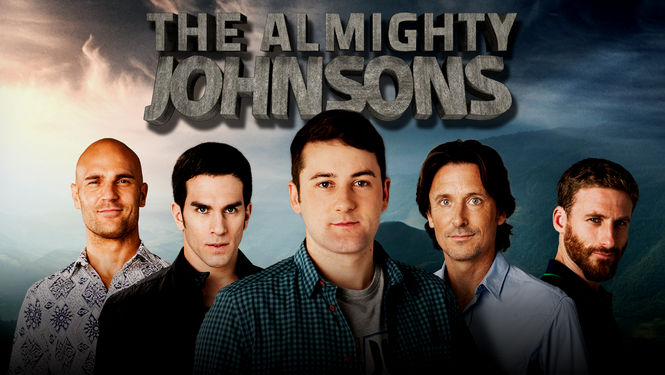by Steve Liskow
When I retired from teaching and returned to writing after a hiatus of over twenty years, I found myself turning to crime fiction without a second's thought. My mother loved Agatha Christie, Rex Stout, Ellery Queen, Ngaio Marsh, and most of the other golden age writers, and I grew up on The Hardy Boys, so it made sense to me.
On the other hand, my theater cronies knew me only as an English teacher with three graduate degrees, and they kept asking "why mysteries?" They obviously thought I should be producing something "more serious," which I guess meant "literary."
Many people still look down at mysteries and romance as something you scrape off your shoe, but I don't know why. Keep in mind that the idea of genre or non-genre writing is a fairly new distinction. I'm too lazy to research, but I'd guess that it began either between the two world wars or after World War II. Book stores began sorting the books to guide customers to their preferences. I'm sorry about that because you never know what you'll find if you dig through everything instead of just what you'd ordinarily read. I still remember my ninth-grade teacher chiding a classmate for reading only books about basketball. With a straight face, she urged him to try football or baseball, too. Most of us got her point.
As for the larger issue, I think it was Samuel Johnson who first said that only a blockhead writes for something other than money, which means that you want to produce something that will sell enough to make your effort worthwhile. If it happens to survive beyond the first press run, that's even better. A good story will last, and those are the books that used to show up in school. We teach or taught very few books that didn't sell because if they didn't sell, they didn't survive.
The Great Gatsby is a notable exception. Several years after Fitzgerald's death, his publisher found over half the original first press run sitting in a warehouse, some twenty years after the original lukewarm reviews.
Between 1970 and 2003, I taught all levels of tenth, eleventh, or twelfth grade English at two high schools and a community college. We updated the curriculum at least three times during that stint, and all these books appeared in classes at one time or another. We generally called them classics then even though some were contemporary. Look how many are really mysteries, sci-fi, romance, or westerns.
A good story is always a good story. So there.
Sherman Alexie: Reservation Blues Jane Austen: Pride and Prejudice
John Ball: In the Heat of the Night Charlotte Bronte: Jane Eyre
Ray Bradbury: The Martian Chronicles, Something Wicked This Way Comes, Dandelion Wine
Emily Bronte: Wuthering Heights Albert Camus: The Stranger
Truman Capote: In Cold Blood Geoffrey Chaucer: The Canterbury Tales
Anton Chekhov: The Sea Gull Alice Childress: Wedding Band
Kate Chopin: The Awakening Agatha Christie: Murder on the Orient Express
Sandra Cisneros: The House on Mango Street
Walter Van Tilburg Clark: The Ox-Bow Incident
Robert Cormier: After the First Death, The Chocolate War
Joseph Conrad: Lord Jim, Heart of Darkness
Stephen Crane: The Red Badge of Courage, "The Bride Comes to Yellow Sky," "The Open Boat"
Charles Dickens: David Copperfield, A Tale of Two Cities, Great Expectations
Fyodor Dostoyevsky: Crime and Punishment, The Brothers Karamazov
Theodore Dreiser: An American Tragedy, Sister Carrie
Ralph Ellison: Invisible Man
Euripides: The Bacchae F. Scott Fitzgerald: The Great Gatsby
William Faulkner: The Reivers, Intruder in the Dust, "A Rose for Emily"
Charles Fuller: A soldier's Play, Zooman and the Sign
Edith Hamilton: Mythology Joseph Heller: Catch-22
Thomas Hardy: The Return of the Native, The Mayor of Castorbridge
Nathaniel Hawthorne: The Scarlet Letter, The House of the 7 Gables, "Young Goodman Brown"
Zora Neale Hurston: Their Eyes Were Watching God
Aldous Huxley: Brave New World
Shirley Jackson: We Have Always Lived in the Castle, The Haunting of Hill House
Henry James: The Turn of the Screw, Daisy Miller Franz Kafka: The Trial, "Metamorphosis"
Ken Kesey: One Flew Over the Cuckoo's Nest
Stephen King: Carrie, The Shining
Jerzy Kosinski: Steps, The Painted Bird, Being There
Harper Lee: To Kill a Mockingbird Sir Thomas Malory: Le Morte D'Arthur
Jerome Laurence & Robert E. Lee: Inherit The Wind, The Night Thoreau Spent in Jail
Sinclair Lewis: Arrowsmith, Babbitt
Carson McCullers; The Member of the Wedding, The Heart is a Lonely Hunter
Arthur Miller: Death of a Salesman, The Crucible
Toni Morrison: Beloved, The Bluest Eye George Orwell: 1984, "Politics & English Language"
Alan Paton: Cry the Beloved Country Mario Puzo: The Godfather
Eric Maria Von Remarque: All Quiet on the Western Front
Jack Schaeffer: Shane Sophocles: Oedipus Rex, Antigone
William Shakespeare: Othello, Hamlet, Macbeth, King Lear, Julius Caesar, A Midsummer Night's Dream, Much Ado About Nothing, As You Like It, The Tempest, Twelfth Night, The Merchant of Venice (During my theater career, I acted in productions of Hamlet, Midsummer, Much Ado, Twelfth Night, As You Like It, The Tempest, and Directed versions of Dream, Much Ado, Merchant, 12 Night, and ran lights for a production of Macbeth)
John Steinbeck: The Grapes of Wrath, Of Mice & Men, Tortilla Flat, The Pearl
Jonathan Swift: Gulliver's Travels Dalton Trumbo: Johnny Got His Gun
Mark Twain: Huckleberry Finn, Pudd'nhead Wilson
Kurt Vonnegut, Jr.: Slaughterhouse-5, Cat's Cradle, Welcome to the Monkey House
Robert Penn Warren: All the King's Men Evelyn Waugh: The Loved One
H. G. Wells: The Time Machine
Edith Wharton: Ethan Frome, The Age of Innocence
August Wilson: Fences Owen Wister: The Virginian
Richard Wright: Black Boy, Native Son
For good measure, we had the Bible in a history of religions course, too, and that covers pretty much every genre all by itself. People who look down their noses at genre miss the point. I wonder how much enjoyment they really get from reading...if they actually do any of it.

















































































































